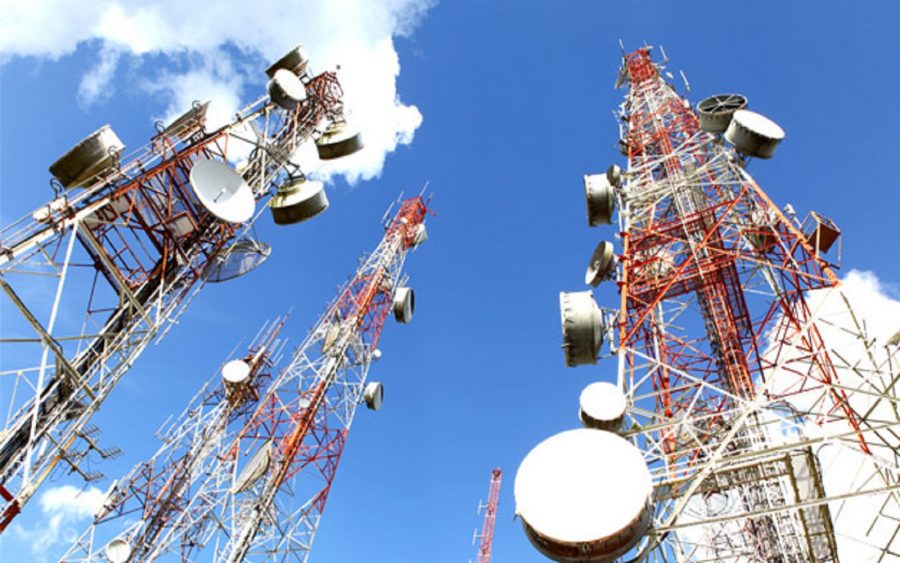The Nigerian telecommunication sector has raised the bar further high, with a stellar 14.5% year-on-year growth in real terms. The telecommunication sector, which is a component of the broader ICT sector grew significantly to N2.25 trillion in Q1 2022 from N1.96 trillion recorded in the corresponding period of 2021.
However, compared to the previous quarter (Q4 2021), the telecommunications sector recorded a 12.4% decline from N2.56 trillion. This is no surprise, considering the huge spending activities usually associated with the last quarter of the year.
Meanwhile, the Nigerian economy as a whole in Q1 2022 grew by 3.11% in real terms, following a 3.98% year-on-year growth recorded in the previous quarter, which represents the sixth consecutive quarterly growth in the Nigerian economy after the covid-induced recession in 2020.
A 3.11% GDP growth in Q1 2022, means that Nigeria’s aggregate real GDP increased by N522.49 billion from N16.83 trillion recorded in the corresponding period of 2021 to stand at N17.35 trillion in the review quarter. More interestingly is the contribution of the telecommunications sector in the growth of the broader economy.
Notably, the Nigerian telecommunications sector grew by N284.45 billion year-on-year from N1.96 trillion to N2.25 trillion, indicating that the sector contributed about 54% to the N522.49 billion growth recorded in the Nigerian economy in the period under review.
Also, on the back of the banking, aviation, and rail transportation sectors, the telecommunications sector ranks one the best performing sectors in the review period.
Growth drivers
The covid-19 pandemic has changed the norms across the world with people and businesses using more online platforms now as against physical meetings. A number of organizations still operate remotely, meetings and seminars are being held online, students have subscribed more to online lectures, and more online content creators have also surfaced in the country.
This means increased data usage by the customers, which indicates more top-line revenue growth for the telcos. Another factor is the rise in the cost of services in the country, occasioned by rising inflationary pressure. The telcos have been able to shift some of these costs to its customers by increasing their tariffs.
A look at the annual reports of the two listed telco companies in the country showed commendable improvement in different metrics. For example, Airtel Nigeria grew their customer base by 5.8% to over 44.4 million while MTN Nigeria’s mobile subscribers hit 68.5 million with its 4G population coverage rising to 70.3% in 2021.
The telcos have also been involved in expanding their operations beyond just voice and data, they are increasing their presence in value-added services in the financial technology space. Recall that the Central Bank of Nigeria (CBN) in April of this year granted MTN the final approval to operate as Momo Payment Service Bank Limited (Momo PSB) in Nigeria.
In the same vein, the CBN also gave Airtel the final approval to operate its SMARTCASH subsidiary as a Payment Service Bank in the country. The company also invested a sum of $550 million into its mobile money business during the year.
Performance of Airtel and MTN in Q1 2022
The two listed telco giants posted impressive results in their finances in the first quarter of 2022. MTN Nigeria reported a 22.23% growth in revenue to the tune of N470.98 billion, with operating profit rising by 34.72% to N179.33 billion. The company also posted a 31.28% growth in its profit after tax of N96.82 billion, while its earnings per share (EPS) rose from N3.62 recorded in Q1 2021 to N4.76.
- A further look at the financial shows that its voice segment of the business raked in a sum of N218.41 billion in revenue in the review period, representing 46% of the total revenue. Also, its data revenue surged by 54.5% to N163.31 billion in Q1 2022.
- On the other hand, Airtel Nigeria raked in $508 million as revenue between January and March 2022, representing a 20.4% increase compared to the $422 million generated in the corresponding period of the previous year.
- Its voice revenue grew by 11.7% to $268 million, while its data revenue recorded a 28.3% increase to $195 million. Similarly, the company’s underlying EBITDA (Earnings Before Interest, Taxes, Depreciation, and Amortization) grew by 20.8% to $279 million, while its operating profit recorded a 21.1% increase to $207 million.
- A look at the two companies’ performance on the equities market also show impressive returns, with both companies belonging to the most capitalized listed firms in Nigeria. As of the end of trading activities on Monday, 23rd May 2022, both companies worth over N10.59 trillion, representing 37% of the total equities market capitalization.
- Notably, Airtel with a valuation of N5.52 trillion, is the most capitalized listed company on the Nigerian stock Exchange, having returned 53.9% year to date as its share price moved from N955 per share as of 31st December 2021 to N1,470 as of press time.
- Similarly, the share price of MTN Nigeria has rallied by 26.4% year-to-date as it currently trades at N249, bringing its market valuation to N5.1 trillion, being the third most capitalized firm on The Exchange.
Why this matters
The Nigerian telecommunication sector has shown significant improvement in the last decade and most notably the 23.3% real growth recorded in the past two years since the struck of the pandemic, with the sector now accounting for 12.9% of the country’s real GDP.
The sector has shown resolve to continue to grow in the future, with Nigeria’s internet penetration still largely inadequate for a population of over 200 million people.
